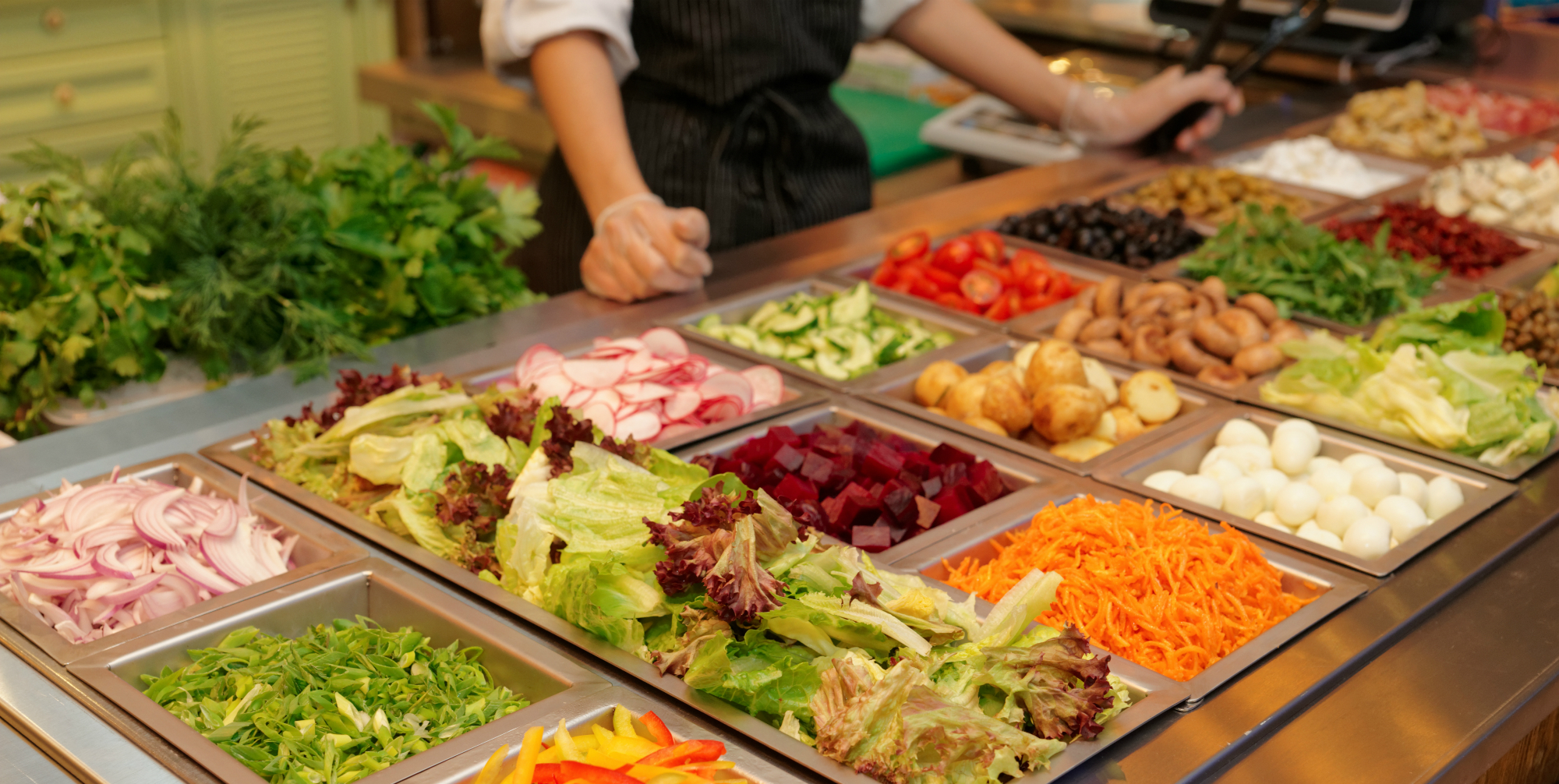(WASHINGTON, D.C.) – Takeout food packaging from several leading U.S. grocery stores is likely treated with harmful PFAS chemicals, according to a new study released today by Safer Chemicals Healthy Families and Toxic-Free Future. PFAS are highly persistent and toxic chemicals whose widespread use has contaminated drinking water across the country. When used in food packaging, the chemicals can leach out of the packaging and get into the food, people, compost, and the environment.
The study, Take Out Toxics: PFAS Chemicals in Food Packaging, found nearly two-thirds of paper takeout containers, like those used at self-serve salad and hot bars, contained elevated levels of fluorine, indicating they were likely treated with PFAS. Eleven percent of bakery and deli papers tested were also likely treated with PFAS.
“It’s time for our nation’s leading grocery stores to take the toxics out of their packaging,” said Mike Schade, Mind the Store campaign director for Safer Chemicals, Healthy Families. “Consumers use these containers as a convenience to bring home food for their families. They don’t expect harmful chemicals to be part of their dinner. The good news is that PFAS-free takeout containers are also available, so grocery retailers can switch to safer packaging. Grocery chains must mind the store to safeguard our health.”
“Takeout packaging without harmful chemicals is widely available, and grocery chains should make the safest choice for their customers,” said Erika Schreder, science director at Toxic-Free Future and one of the report authors. “It doesn’t make sense to use chemicals that never break down in the environment to treat takeout packaging when safer options can be chosen.”
Researchers tested 78 food packaging samples from five of the nation’s largest grocery stores: Ahold Delhaize (parent of Food Lion, Stop and Shop, and Hannaford), Albertsons, Kroger, Trader Joe’s, and Whole Foods Market (Amazon). Items tested included paper takeout containers, bakery or deli papers, microwavable trays, and baking supplies like muffin cups.
Testing results include:
- 13% (10 out of 78 samples) of all food packaging samples tested were likely treated with PFAS.
- 63% (5 out of 8) of takeout containers were likely treated with PFAS. Four out of the five analyzed takeout containers from Whole Foods Market were likely treated with PFAS.
- 11% (4 out of 38) of deli and bakery papers tested were likely treated with PFAS.
- Tests of packaging for cook-at-home food and home baking supplies, including microwave- and oven-cook food trays, butter wrappers, baking cups, and rolls of parchment paper did not find any items likely treated with PFAS.
- In many cases, retailers use or sell packaging that is free of PFAS treatment, indicating that PFAS-free alternatives are widely available and competitively priced.
In response to the report, Whole Foods Market said, “Whole Foods Market introduced compostable containers to reduce our environmental footprint, but given new concerns about the possible presence of PFAS, we have removed all prepared foods and bakery packaging highlighted in the report. We’re actively working with our suppliers to find and scale new compostable packaging options.”
This research builds upon previous studies of PFAS in food packaging, which found that microwave popcorn bags, many fast food wrappers, and many food serviceware items (such as plates and bowls) are likely to be treated with PFAS.
PFAS are a class of industrial chemicals put in consumer products to repel grease, water, and stains, and they are also used in some firefighting foams. PFAS are linked to liver damage, harm to the immune system, developmental toxicity, and cancer, and can stay in people and the environment for a long time. The chemicals have been detected in people, including newborns, as well as in breast milk, drinking water, and the environment. PFAS has also been detected in compost made from recycled paper products treated with PFAS. When the compost is spread on the land it can contaminate waterbodies, soil, wildlife, and crops.
The new study comes at a time when these chemicals are increasingly under scrutiny by government regulators. Washington state and San Francisco recently banned PFAS in paper food packaging. New York has required its state agencies to give preference to PFAS-free food packaging when making purchasing decisions.
Health advocates urge grocery chains and other food retailers to:
- Adopt and implement public polcies with clear quantifiable goals and timelines for reducing and eliminating PFAS in ALL private label and brand-name food-contact materials. Retailers should publicly report on progress and announce when their products are PFAS-free.
- Agree to meet the new Washington state ban on PFAS use in food packaging, not just in Washington, but nationwide.
- Develop a comprehensive safer chemicals policy to reduce and eliminate other toxic chemicals, such as hormone-disrupting phthalates, in food contact materials.
Health advocates also call for:
- State and local government to ban PFAS in food contact materials and to ensure safer alternatives are used.
- State agencies to give preference to PFAS-free food serviceware in contracts.
- Commercial composting facilities to immediately ban all PFAS-treated materials.
- Individuals to urge food retailers and elected officials to ban PFAS in food contact materials.
To learn more about PFAS in food contact materials and the study methods, see the full report: Take Out Toxics: PFAS Chemicals in Food Packaging.
###

